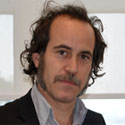Advisory Board and Editors Developmental Biology

Heriberto Rodriguez-Martinez
Professor of Reproductive Biology at the Faculty of Health Sciences and Director of the Centre of Biomedical Resources at the University of Linköping, Sweden. DVM, MSc, PhD; Professor of Reproductive Biotechnology, SLU 1991, Founding Diplomate of the European College of Animal Reproduction (ECAR, 1999). Editor-in-Chief of Reproduction in Domestic Animals (Wiley-Blackwell, 2000).

Richard A. Schneider
Professor, Department of Orthopaedic Surgery; Director, Laboratory for Developmental and Evolutionary Skeletal Biology. BA, Hampshire College; MSc and PhD, Duke University.

Wei Shen
- Professor of Reproduction and Development Biology at Qingdao Agricultural University
- Director of 'Animal Procreation & Germplasm Innovation' Shandong Key Laboratories in Universities of Shandong
His research includes Molecular and Cellular Approach to the Study of Development Biology of Mammalian Germ Cells. Based on this research and fellowship training he has received several awards and honors. He is serving as an editorial member of several reputed journals, and he has authored many research articles and books.

Amit Singh
Dr. Singh received his B.Sc. from the Government Degree College Nahan, H.P. University, India and his M.Sc. and Ph.D from Devi Ahilya University, Indore, India. After a short stint as a Research Associate in the field of Trangenics of silkworm, Bombyx mori, in Indian Institute of Sciences (IISc.), Bangalore, India, Dr. Singh moved to Academic Sinica Taiwan to pursue post doctoral research in the field of eye development using Drosophila melanogaster model system. In 2002, Dr. Singh moved to Baylor College of Medicine, Houston, Texas to further pursue his work on Drosophila eye development and was promoted to an instructor (non-tenure track faculty) position in 2004. Dr. Singh was hired at University of Dayton as a tenure track assistant professor in 2007 and promoted to associate professor in 2013. To date, he has published one book and 52 papers.

Mikhail Spivakov
A Regulatory Genomics group leader at Babraham Institute, Cambridge UK. Interested in the logic and robustness of gene regulation, with a particular focus on computational approaches and ageing as the experimental system.

Vasanta Subramanian
Vasanta Subramanian is currently an Associate Professor in Vertebrate Developmental Genetics and Stem cell Biology. Her research focus is in three main areas- (1) Polycomb group genes, signalling and embryonic development (2) stem cells and reprogramming and (3) stem cell and transgenic mouse models for neurodegenerative diseases.She is a Fellow of theRoyal Society of Biology.

Keiko Sugimoto
Group leader at RIKEN Plant Science Center. Editorial Board Member of Cell Reports, The Plant Cell, Genes to Cells, Plant and Cell Physiology, and Frontiers in Plant Science

Qing-Yuan Sun
Professor of Reproductive and Developmental Biology, vice-president of Chinese Society of Zoology, president of Chinese Society for Cellular and Molecular Microscopy, Secretary General of Chinese Society of Reproductive Biology, and former director of the State Key Laboratory of Reproductive Biology, Institute of Zoology, Chinese Academy of Sciences.
Awards and Honors:
- Distinguished Young Scientist of The Chinese Academy of Sciences (1999);
- Grants for Outstanding Young Scientists from National Natural Science Foundation of China (2002);
- National Award for Distinguished Scholars Returned From Abroad (2003);
- Distinguished Youth of The Chinese Academy of Sciences (2003);
- National Award for Outstanding Young Scientists (2004);
- National Award for Outstanding Post-Docs (2006);
- National Natural Science Prize (Second) (2006)
- BHP Billiton Supervisor Research Award, Graduate School of Chinese Academy of Sciences (2007)
- The Outstanding Researcher during the National 11th Five-Year Plan, Ministry of Science and Technology (2011)
- The First Prize for Science and Technology Progress, National Population and Family Planning Council (2011)

Shao-Chen Sun
Professor of Reproductive Biology at Nanjing Agricultural University. Focused on molecular mechanisms of mammalian oocyte maturation and reprodutive toxiology.

Terje Svingen
Assoc. Prof. Svingen is Head of Research group for Molecular & Reproductive Toxicology at the National Food Institute, Technical University of Denmark (DTU Food). His research group focuses on how early life exposure to environmental chemicals, particularly endocrine disruptors, can adversely affect development and lead to disease. His research group conducts basic research alongside involvement in regulatory toxicology. Main focus is on the mechanisms of effects leading to reproductive and neurodevelopmental disorders.

Gianluca Tettamanti
- Degree in Biology (University of Milano), 1997
- PhD in Evolution and Development (University of Insubria), 2003
- Assistant Professor (Zoology), University of Insubria, 2005-2011
- Associate Professor (Zoology), University of Insubria, 2011-present
Research topics addressed:
- Cell death and regeneration in insect development
- Insect biotechnology
- Immune response in insects
- Author of 90 papers in peer-reviewed journals
- Author of 11 book chapters

Mahendra Pratap Singh Tomar
Dr. Mahendra Tomar is a Veterinary Professor and Anatomist at the N.T.R. College of Veterinary Science, Gannavaram.
Dr. Tomar works in the field of comparative anatomy of animals, particularly mammals, and his research focuses on macroscopic and microscopic anatomy including the developmental biology of animals. More specifically, his fields of expertise are histology, histochemistry, enzyme histochemistry and forensic animal anatomy.

